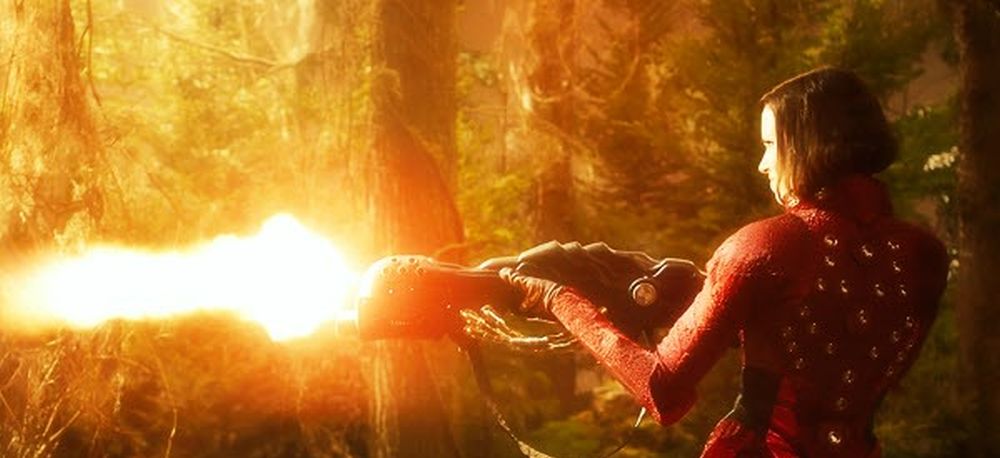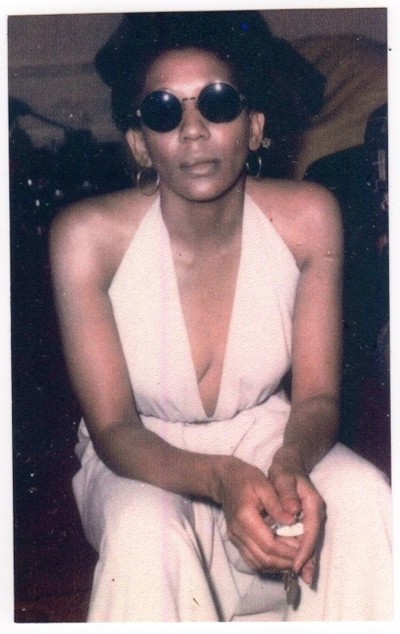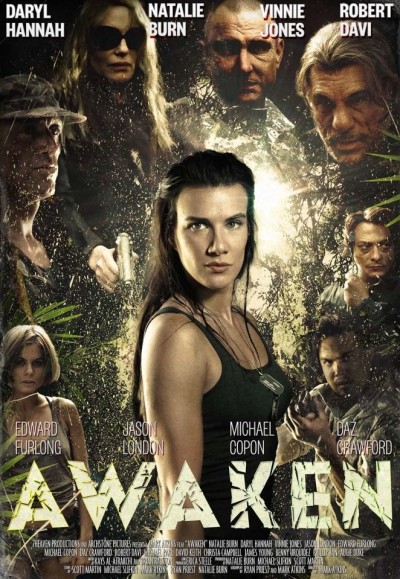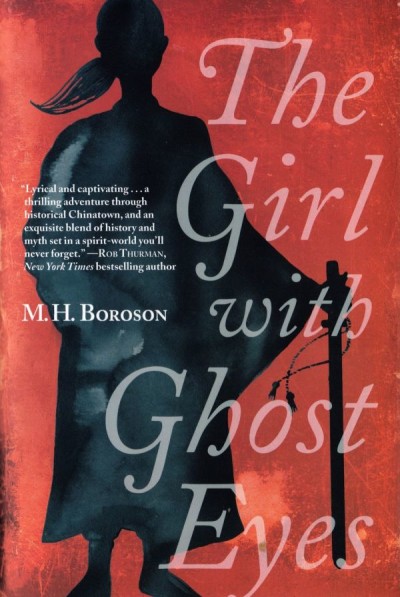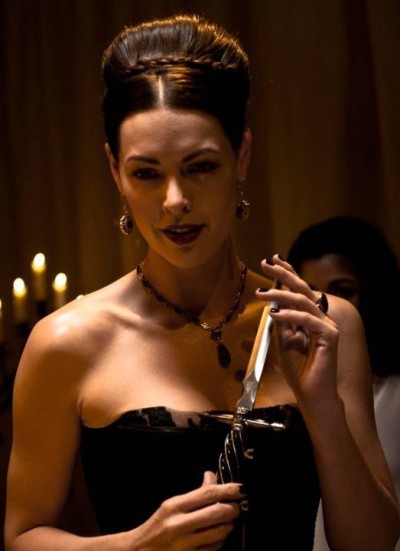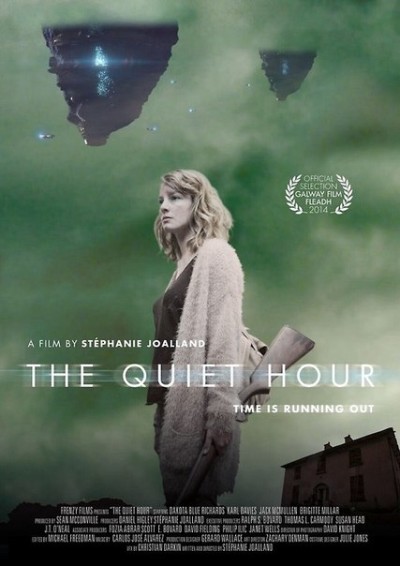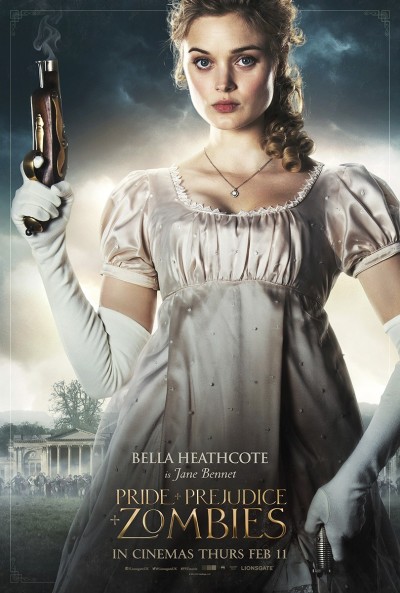★★
“More sour than sweet.”
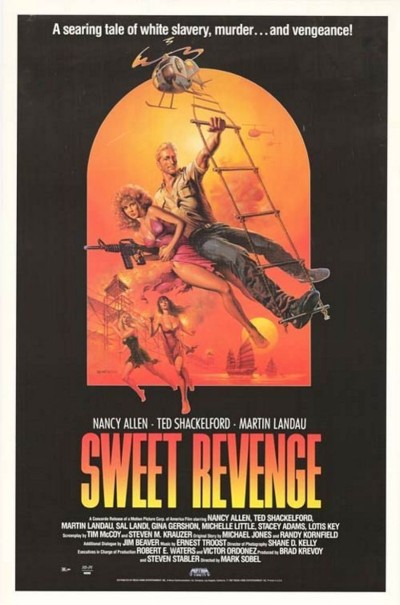 Ah, the eighties. A time of big guns and even bigger hair, going by this underwhelming entry, which sees Allen as feisty and well-lacquered reporter Jillian Grey, who gets too close to the white slaving operation run by Mr. Cicero (Landau). [Even though he operates out of the Philippines, he’s still kidnapping girls out of bars in Los Angeles, which seems logistically inefficient, shall we say] She is abducted and offered for sale, only to break out of the auction with a couple of other American girls – the non-Caucasians are, it appears, left to their own survival – pausing only to rescue international perfume smuggler, Boone (Shackelford). Believing Cicero has also kidnapped her daughter, Jillian convinces Boone to join her and the girls in an attack on the white slaver’s compound – but to get the necessary weapons for that, they’ll first have to help out his outlaw friend, Buddha.
Ah, the eighties. A time of big guns and even bigger hair, going by this underwhelming entry, which sees Allen as feisty and well-lacquered reporter Jillian Grey, who gets too close to the white slaving operation run by Mr. Cicero (Landau). [Even though he operates out of the Philippines, he’s still kidnapping girls out of bars in Los Angeles, which seems logistically inefficient, shall we say] She is abducted and offered for sale, only to break out of the auction with a couple of other American girls – the non-Caucasians are, it appears, left to their own survival – pausing only to rescue international perfume smuggler, Boone (Shackelford). Believing Cicero has also kidnapped her daughter, Jillian convinces Boone to join her and the girls in an attack on the white slaver’s compound – but to get the necessary weapons for that, they’ll first have to help out his outlaw friend, Buddha.
Shudderingly uneven in tone, this would have worked much better if the makers had figured out whether they were going for Romancing the Stone style hi-jinks or New World Pictures exploitation, because what we get here doesn’t work as either. The problem with the former is Boone, who demonstrates the thin line between endearing and irritating, falling firmly on the latter side, as the result of Shackleford’s painful lack of charisma and acting talent. The latter, meanwhile, is defused by the almost complete lack of nudity; save one bit of skinny-dipping, the rest of the film would likely merit a PG these days. There’s lots of running around with automatic weapons, of course, and an energetic amount of things being blown up, plus you get Gershon in what may well be her first feature role, apparently knowing martial arts and making far more of an impression than Shackleford. You can certainly see why, almost 20 years later, she’s still working and he isn’t.
Indeed, the film as a whole would be significantly improved if Boone was removed entirely, and the film concentrated solely on Grey and her sidekicks, even if the whole subplot about the heroine’s daughter is half-baked at best. Just have that happy-go-lucky trio going up against Cicero and his gang of (fortunately, incapable of aiming) goons, and you could have something looking like a better-financed version of an Andy Sidaris film. Though admittedly, you would need some more gratuitous hot-tub action as well, before it would reach that level. Instead, you have something trying to be too many things and appealing to too many audiences, instead ending up as a film which is no better than “somewhat satisfactory” for just about anyone.
Dir: Mark Sobel
Star: Nancy Allen, Ted Shackelford, Gina Gershon, Martin Landau





 I can’t believe an IMDb reviewer wrote the above, with an apparently straight face, because it’s severely missing the point of this nudie-cutie Western. The women are certainly packing, but the large-caliber weapons on display are not restricted to six-shooters, if you know what I mean, and I think you do… That said, I reviewed this as a girls with guns flick a long time ago, back when this site was not even a gleam in my eye. But watching it again, I was beginning to wonder if I’d seen a different movie, as the first half is entirely action-heroine free.
I can’t believe an IMDb reviewer wrote the above, with an apparently straight face, because it’s severely missing the point of this nudie-cutie Western. The women are certainly packing, but the large-caliber weapons on display are not restricted to six-shooters, if you know what I mean, and I think you do… That said, I reviewed this as a girls with guns flick a long time ago, back when this site was not even a gleam in my eye. But watching it again, I was beginning to wonder if I’d seen a different movie, as the first half is entirely action-heroine free.